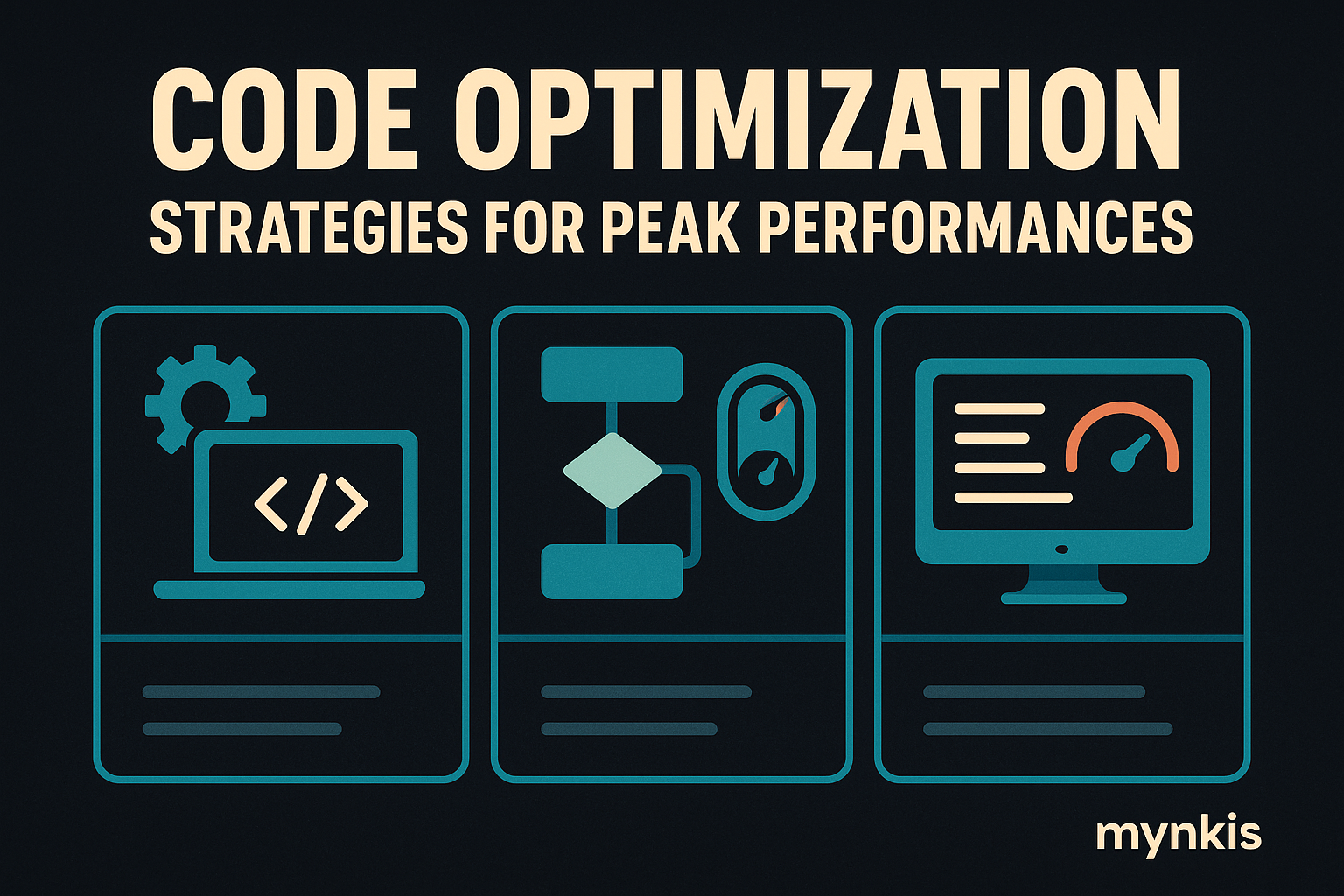Schedule a Demo
Have you ever wondered what makes a piece of software not just functional, but truly high-performing? In the intricate world of custom software development, code optimization stands as a pivotal process, transforming ordinary applications into masterpieces of efficiency and performance.
At its heart, code optimization revolves around enhancing software efficiency without compromising functionality. It's about fine-tuning every line of code to ensure that your enterprise web solutions run at lightning speeds. From reducing load times to minimizing resource usage, every millisecond counts in the race to deliver seamless user experiences.
But why should you care about code optimization? In today's landscape, where user expectations are sky-high, performance directly impacts user satisfaction and conversion rates. Slow-loading pages and lagging applications can be the death knell for even the most promising of ventures.
There's no one-size-fits-all approach to code optimization. In my experience working with tech leaders, strategies can vary widely depending on the application's purpose and architecture. One common technique is algorithmic optimization, where we rework algorithms to be more efficient, dramatically cutting down on time complexity.
Another approach is code refactoring. This process involves restructuring existing code without changing its external behavior, but enhancing its internal architecture. Through refactoring, we can eliminate redundancies and streamline processes, leading to cleaner, faster software. As referenced by the Software Engineering Institute, refactoring practices can lead to long-term gains in maintainability and performance.
Let's also not overlook caching. Implementing smart caching strategies can significantly speed up data retrieval and processing. Whether it's browser caching for web applications or server-side caching for databases, these techniques can shave precious seconds off load times.
The ripple effects of high-performance software on user experience are profound. A page load time improvement from 8 to 2 seconds, as per Google's studies, can boost user engagement by up to 74%. When your business's primary touchpoint with users is through a booking-enabled website, these milliseconds aren't just numbers—they're conversions.
I've seen firsthand how a streamlined, optimized user interface translates into higher conversion rates. The marriage of design that prioritizes user conversion with well-optimized backend code is a powerful formula for success.
Code optimization also has a subtle yet significant impact on your website's organic search rankings. Search engines like Google reward faster-loading sites with higher placements, understanding that speed affects user experience and satisfaction. Optimizing your code contributes to reducing bounce rates, which in turn, strengthens your SEO profile.
Integrating effective code optimization into your enterprise web solutions means not just building for today, but future-proofing against evolving search engine algorithms and user demands. The focus on design for user conversion while optimizing behind the scenes aligns seamlessly with achieving robust organic search visibility.
The path to optimized code isn't without its hurdles. One significant challenge lies in balancing optimization efforts with development timelines and budgets. Over-optimization can lead to diminishing returns, making it critical to focus on areas that yield the most significant performance gains. In my work with operation managers, I've seen how establishing clear performance goals from the project outset guides the optimization process effectively.
Another consideration is the potential for optimized code to become less readable or more complex, which can complicate future updates and collaborations. Therefore, it's vital to weigh the long-term maintainability of code against the immediate performance improvements.
As technology advances, so too do the tools and techniques for code optimization. Emerging technologies like AI-assisted optimization can automate many aspects of this process, offering new possibilities for achieving peak performance. Yet, the human element—understanding the specific needs and behavior of your target audience—remains indispensable.
The journey toward optimized software is ongoing. Whether you're overseeing a startup's minimal viable product or an established corporation's flagship application, embracing code optimization as part of your custom software development strategy can define the difference between adequacy and excellence.
